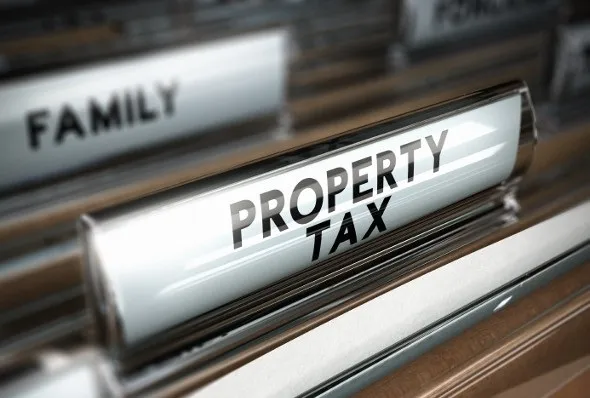

If you’re considering buying a new home, a tax abatement may provide an incentive that’s hard to pass up. These beneficial tax programs allow for a long-term break on your property tax bill. Savings like that will undoubtedly impact your bottom line in a positive way. However, tax abatements are only available in specific areas of certain cities, so you may need to do some digging.
Taxes can be complicated, and mistakes handling them can be costly. Consider working with a financial advisor to ensure that you make tax efficient moves with your money.
A financial advisor may be able to help. Match with an advisor serving your area today.
A tax abatement is a property tax incentive government entities issue that will reduce or eliminate taxes on real estate in a specific area. Abatements can last anywhere from just a few months to multiple years at a time. Low- to middle-income residents are usually the target demographic for these programs. Although towns and cities typically offer abatements the most, there are state and federal government programs as well.
If you buy a home that is already eligible for a property tax abatement, you’ll be able to reap the benefits immediately. Your property tax bill will be lower, or waived entirely, for the duration of the abatement period. Issuing entities do have the right to revoke the abatement, though.

There’s no definitive answer as to when and if you’ll be eligible for tax abatement. This is because eligibility requirements vary wildly from municipality to municipality and state to state. To gain approval, many government entities will likely ask you to submit an abatement application. There are a number of factors you can look out for, though, to determine if you’ll fit into the guidelines for an abatement.
Most importantly, many tax abatements come with income stipulations for new homeowners. In general, these programs are meant for low- to middle-income individuals and families whom property taxes might significantly affect. If you earn too much, a tax abatement might be outside of your reach.
In some cities, you may have to work for your tax abatement. You might have to renovate or make environmental improvements to the property before applying for a property tax abatement. This lengthy process can be a headache, so make sure you have enough money to cover the unabated property taxes in the meantime.
Tax abatements often call for new residents to move into eligible homes during an exact period of time. This could be a major problem for anyone looking to move into a new place before or after these predecided windows.
Tax abatement program can incentivize individuals and families to move into less desirable communities. So despite the perks of abatements, you may not be thrilled with where you must relocate to get them. Some things to consider include crime rates and school quality.
Because tax abatements are temporary, eligible homeowners will need to prepare for when they run out. When the time comes, the rise in your bills could be a shock, so talking to a financial advisor might be a worthwhile investment.
Unfortunately, sometimes you can only claim an abatement on the value you added to property by making renovations, not on the entire value of the house. In other words, you would pay property taxes on the value of the home before you made additions or renovations. Then you would get a tax break on the rest.

In many cases, offering a property tax abatement is part of an effort to revitalize a city or a neighborhood. These programs – for landlords and regular homeowners alike – can serve as an incentive for new construction and renovation. These improvements to local properties can attract new residents and businesses to an area. When the abatement runs out, the property tax base may be larger. That could lead to an increase in property tax revenue in the long run.
Some cities or states offer property tax abatements as an incentive for historic preservation. Someone who is willing to buy a historic property and remodel it or expand it rather than tear it down may qualify for a tax break. If you’ve always dreamed of renovating a historic home, you may want to do some research to find areas that would offer you a tax break for your efforts.
A property tax abatement could be enough to sell you on a given home. You may be deciding between two properties you like. If one comes with a tax abatement, that’s a plus that can increase the house’s appealing. Before you buy, however, it’s a good idea to consult local records to see what the property tax payments would be without the abatement.
Then, you’ll want to make sure you budget for the property tax increase so you’re not caught off guard when the abatement ends. For expensive properties in markets like New York City, your property tax bill could rise significantly when an abatement ends. But like most financial situations, planning is key.
Photo credit: ©iStock.com/McKevin, ©iStock.com/Olivier Le Moal, ©iStock.com/Michael King
Amelia JosephsonAmelia Josephson is a writer passionate about covering financial literacy topics. Her areas of expertise include retirement and home buying. Amelia's work has appeared across the web, including on AOL, CBS News and The Simple Dollar. She holds degrees from Columbia and Oxford. Originally from Alaska, Amelia now calls Brooklyn home.
Read More About Taxes



More from SmartAsset
SmartAsset Advisors, LLC ("SmartAsset"), a wholly owned subsidiary of Financial Insight Technology, is registered with the U.S. Securities and Exchange Commission as an investment adviser. SmartAsset's services are limited to referring users to third party advisers registered or chartered as fiduciaries ("Adviser(s)") with a regulatory body in the United States that have elected to participate in our matching platform based on information gathered from users through our online questionnaire. SmartAsset receives compensation from Advisers for our services. SmartAsset does not review the ongoing performance of any Adviser, participate in the management of any user's account by an Adviser or provide advice regarding specific investments.
We do not manage client funds or hold custody of assets, we help users connect with relevant financial advisors.
This is not an offer to buy or sell any security or interest. All investing involves risk, including loss of principal. Working with an adviser may come with potential downsides such as payment of fees (which will reduce returns). There are no guarantees that working with an adviser will yield positive returns. The existence of a fiduciary duty does not prevent the rise of potential conflicts of interest.